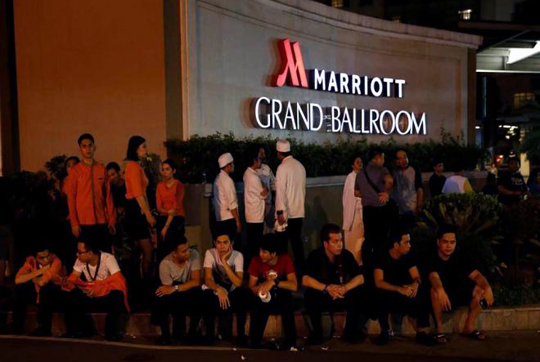Manila, Jun 2: A gunman stormed a casino in the Philippine capital and torched gambling tables in the crowded space, creating a choking level of smoke that killed at least 36 people, authorities said. The gunman stuffed a backpack with casino chips before he fled but was found dead in an adjacent hotel early on Friday of an apparent suicide.

Metropolitan Manila police chief Oscar Albayalde said the bodies were found in smoky rooms by firefighters and all died from suffocation and smoke inhalation. None of the bodies had gunshot wounds.
The attack sent hundreds of people fleeing into the night outside the Resorts World Manila complex and produced a claim of terrorism. Police stressed they had no evidence to support the claim. The violence unfolded as government forces were engaged in a second week of fighting against Muslim militants aligned with the Islamic State group in the southern city of Marawi.
“He would have shot all the people gambling there” if it had been terrorism, national police chief Ronald dela Rosa said. “But he did not hurt anyone.”
Authorities suspect the motive was robbery. “It's either he lost in the casino and wanted to recoup his losses or he went totally nuts,” Albayalde said. He saw no connection to the fighting in Marawi.
Dela Rosa said security footage showed the gunman ignoring a guard who tried to question him at the entrance to the complex. He did not hurt the guard but went straight to the gambling area, dela Rosa said.
The gunman stole gambling chips, shot TV screens and set gambling tables ablaze by pouring gasoline on them, dela Rosa said. It was not clear how the gunman smuggled gasoline and an assault rifle into the crowded casino, but the assailant did not fire at people he encountered.
An additional 70 people or more suffered mostly minor injuries in the stampede to escape. The only gunshot wound was a guard at the complex, who accidentally shot himself when the suspect entered the room, authorities said.
About 90 minutes after the attack began, Resorts World Manila said on its Facebook page that it was on lockdown following reports of gunfire and it was working to ensure the safety of guests and workers.
The national police chief said the gunman apparently barged into a room at the 5th floor of the Maxims hotel connected to the mall and casino, laid on the bed, blanketed himself, doused himself with gasoline then set himself on fire. The bag of gambling chips worth 113 million pesos ($226,000) was found in a toilet.
The suspect was English-speaking but had no identification cards. Dela Rosa described him as “white, with a mustache” and about 6 feet tall. He said the man's car at the parking lot was being examined.
As news of the attack had spread, President Donald Trump offered the thoughts and prayers of the American people to the Philippines.
“It is really very sad as to what's going on throughout the world with terror,” he said from the White House Rose Garden. Mr. Trump said he was “closely monitoring the situation” and would continue to provide updates.
The unrest in Marawi had sparked fears that militants might attack elsewhere to divert the focus of thousands of troops trying to quell the siege. But dela Rosa said “We cannot attribute this to terrorism without concrete evidence.”





Comments
Add new comment